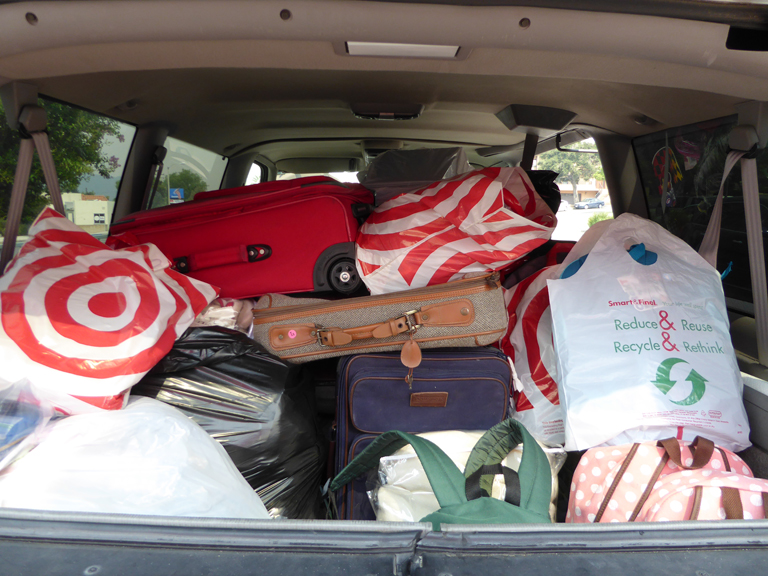
Traditionally the community has been generous in its donations to Kases for Kids as is evident by how stuffed the rear section of one van was at a prior collection event.
By Mary O’KEEFE
Imagine being a child. It’s late at night and there have been some fighting or other issues in your home. Strangers and law enforcement come in and everything seems to get louder and confusing. People come to you and tell you to grab some of your personal items, that you have to leave. Your stuff is shoved into a garbage bag and you are walked out of your home.
This is a scenario that plays out often for children who are taken into the Dept. of Children and Family Services. For years the Crescenta-Cañada Lions Club has been working to make this transition a little easier.
Each year the organization collects backpacks that will be distributed to children entering, or already in, foster care through its annual Kases for Kids drive. On Saturday club members will be collecting backpacks, small suitcases and other items, like toiletries, in a booth in the parking lot of Ralph’s market at 2675 Foothill Blvd. The drop-off times are from 10 a.m. to 2 p.m.
The time of transition into a foster home can be stressful for children; the donated backpacks will hopefully make that transition a little easier. All bags will be filled with donated items including toiletries, school supplies, blankets and other items. The bags will go to the Dept. of Children and Family Services for distribution. The Dept. of Children and Family Services also requests donations of comfort items, like stuffed animals, to necessities like toothbrushes and soap.
“It can be very traumatic sometimes when they are leaving their homes,” Neil Zanville, spokesman of Public Affairs Los Angeles County Dept. of Children and Family Services (DCFS) said in an earlier interview with CVW.
Children who are taken into the DCFS are first put into the care of a relative. Social workers perform background checks to make certain the relative does not have a criminal past and is suitable to take the children. This takes time and often the children are taken to an office to wait.
“I see kids in the lobby [with a plastic bag],” said Lovette Panthier, supervisor social worker and resource coordinator for DCFS in an earlier interview with CVW. “I cannot stand seeing children with [their possessions in] a garbage bag.”
Recently Panthier attended training in which attendees were given items in a plastic garbage bag.
“We had to walk around all day with a trash bag,” she said, adding the experience made her uncomfortable. She said didn’t want children to feel that way.
